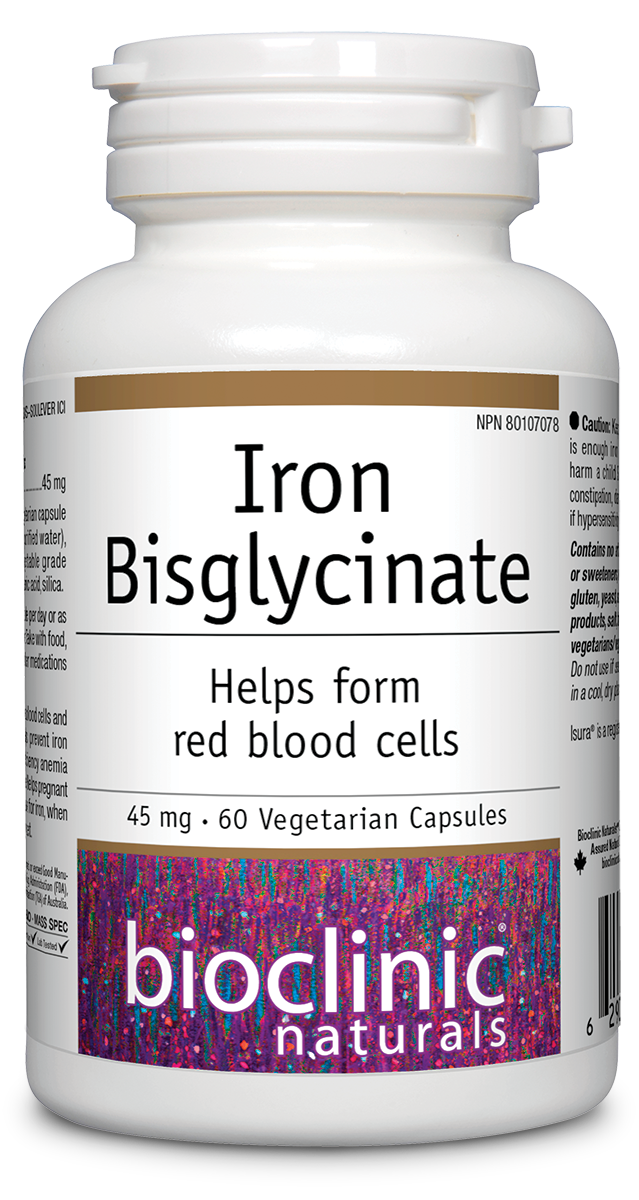
Helps Form Red Blood Cells
45 mg
60 Vegetarian Capsules ( SKU: 9505, NPN: 80107078 )
Medicinal Ingredients
| Each Vegetarian Capsule Contains: | |
| Iron (Bisglycinate) | 45 mg |
Non-Medicinal Ingredients
Vegetarian capsule (carbohydrate gum [cellulose], purified water), microcrystalline cellulose, vegetable grade magnesium stearate (lubricant), stearic acid, silica.
Dosage:
Recommended Adult Dose: 1 capsule per day or as directed by a health care practitioner. Take with food, a few hours before or after taking other medications or natural health products.
Warnings:
Keep out of reach of children. There is enough iron in this package to seriously harm a child. Some people may experience constipation, diarrhea, and/or vomiting. Stop use if hypersensitivity occurs.
Allergens:
Contains no artificial colours, preservatives, or sweeteners; no dairy, starch, sugar, wheat, gluten, yeast, soy, egg, fish, shellfish, animal products, salt, tree nuts, or GMOs. Suitable for vegetarians/vegans. Sealed for your protection. Do not use if seal is broken. For freshness, store in a cool, dry place.
